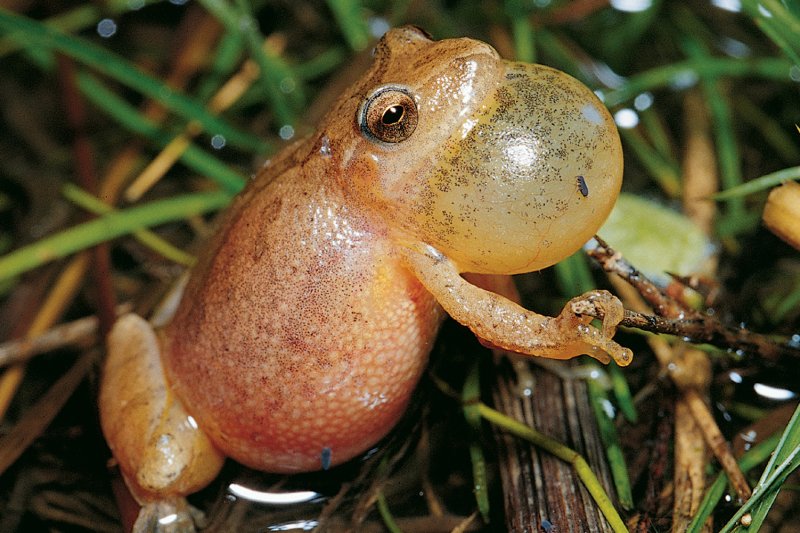Frogs get stressed by traffic noise, new research showed. Photo by Jim Rathert/Mo Dept. of Conservation/UPI |
License Photo
Nov. 21 (UPI) -- Sonic stress can disrupt the health of amphibians, according to a new study. But the research suggests animals can adapt to tolerate loud noises.
New analysis of frogs from noisy and quiet ponds revealed two different stress and immune profiles. Researchers described the differences in a new paper published Wednesday in the journal Proceedings of the Royal Society B: Biological Sciences.
When scientists exposed frogs from quiet ponds to the noises of a busy highway, the amphibians became stressed. In addition to producing more of the stress hormone corticosterone, the frogs also experienced changes to their immune profile.
Frogs from quiet ponds exposed to traffic noise made more white blood cells called monocytes. The change resulted in a diminished production of antimicrobial peptides.
"Antimicrobial peptides are components of the immune defense system that provide important protection against pathogens like bacteria and fungi," Louise Rollins-Smith, professor of pathology, microbiology, and immunology at the Vanderbilt University School of Medicine, said in a news release. "Brevinin-family peptides in particular strongly inhibit the fungal pathogen that causes the infectious disease chytridiomycosis, or chytrid, which is responsible for widespread mortality of amphibians around the world."
Frogs living in ponds next to busy highways aren't helpless. Researchers found frogs collected from noisy ponds had adapted by lowering their stress response, thus reducing the negative impacts on their immune systems.
When frog eggs collected from noisy ponds were raised in the lab and exposed to traffic noise, the frogs failed to increase their corticosterone production.
"We're not sure if the frogs from noisy sites have a suppressed stress response to noise specifically or if they have a suppressed stress response overall," said Tracy Langkilde, professor and head of biology at Penn State. "Both offer the benefit of avoiding stress-related costs of noise, but having a dampened stress response in general could have other negative effects, for example not being able to properly mount a behavioral response to predators."
Frogs from noisy ponds exposed to ambient noise, quieter background noises, actually increased their production of monocyte counts. Scientists think frogs from noisy ponds interpreted the oddly silent environs as unfamiliar -- and worthy of a stress response.
In follow-up studies, researchers hope to further explore how exactly frogs adapt to noise increases.















